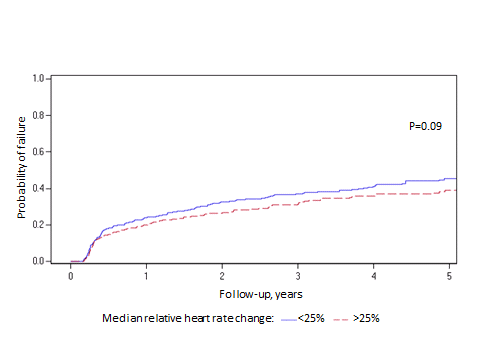
Sinus Rhythm Heart Rate Post Atrial Fibrillation Ablation May Predict Outcomes Post Ablation
2Internal Medicine, Mayo Clinic
3School of Medicine, Mayo Clinic
4Health Sciences Research, Mayo Clinic
Aims: Neural modulation with pulmonary vein isolation (PVI) may be more successful than PVI alone for atrial fibrillation (AF) ablation and may be signaled by changes in sinus rhythm (SR) heart rate post ablation. We sought to determine if a change in SR heart rate predicted outcomes post PVI.
Methods and Results: Patients who underwent AF ablation from 2000-2011 were included if SR was noted on ECG within 90 days pre & 7 days post ablation. Basic ECG interval & heart rate changes were analyzed and outcomes determined. 1152 patients were identified (74.3% male, mean age 57±11 years). Mean AF duration was 5.2±5.3 years. Paroxysmal AF was noted in 712 (61.8%) of the patients. Patients failed an average of 1.6 antiarrhythmic drugs prior to ablation. Mean EF was 61±6%. Left atrial size was enlarged in 71%. Linear ablation & SVC ablation was performed in 707 (61.4%) & 123 (10.7%) patients, respectively. SR heart rate was 61±11 bpm pre- & 76±13 bpm post-ablation (27±24% increase, P<0.001). The ability of relative heart rate change post-ablation to predict AF recurrence was borderline (hazard ratio 0.81 [0.34-1.01], P=0.07). When patients were separated around the median relative heart rate change (25%), patients with >25% change also tended to do better (P=0.09, figure). There were significant changes in PR (171±28 to 167±30 ms) and QTc (424±25 to 434±29 ms) intervals (both P<0.001) but these were not predictive of outcome.
Conclusion: Changes in heart rate post AF ablation may predict outcome. Further studies are needed.
Powered by Eventact EMS